Episodes
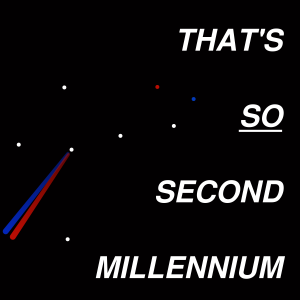
Monday Apr 29, 2019
Episode 057 – The Best Thing Out There
Monday Apr 29, 2019
Monday Apr 29, 2019
Apologies for the sound quality today; Zencastr wasn’t working, so we recorded on Zoom, and even then there were problems with the audio especially in the latter half of the podcast.
The question we take up at the beginning of the Easter season is this: Why has Western society gone to such pains to throw away the best thing going, intellectually and otherwise?
In his ongoing podcast research, Paul has come across the Pat Flynn Show, and listened to some really good interviews with Fr. Robert Spitzer (a TSSM interviewee) and Ed Feser (whose talk at the 2018 Society of Catholic Scientists conference was the topic of one of our most popular episodes). Bob Spitzer’s interviews in particular were some of the most inspiring things I’ve encountered recently and really led me to propose this series of conversations with Bill about how Catholic Christianity is the best way of looking at the world.
Of course, Western society has drifted hard away from its roots in classical Greek and Jewish/Christian heritage. Ireland is the most recent example of a society, one of the last to retain a semi-traditional cozy relationship between the Church and the state, now deciding to punish the Church for the crimes of the hypocritical members of its clergy by trying to erase its very history. Progressivism in general replaces traditional dogmas with dogmas-of-the-day, and the record up to this point has been pretty dismal.
We spend some time discussing the roots of what the contemporary West seems to consider its greatest achievement, modern science, in the critical tradition of Scholasticism (knowledge of which was practically the first thing to go after the Reformation began the process of intellectually punishing the Church). We would do better to have a broader memory of the Scholastic tradition even among us Catholics...to recall that it was a movement in which Thomas Aquinas was embedded, rather than remembering only him. In our time as well we don’t need single hero figures, we need a community. The scientific community knows this very well.
We go on to consider what this fraught term “dogma” really means. The Christian dogmas are really testimony, and they can’t change without repudiating the unrepeatable testimony of the events of salvation history. This is the context of the warnings at the end of the Apocalypse of John, “cursed be he who adds or takes away from the words of this book.” As Chesterton and many others have pointed out, these dogmas are not a straightjacket but a foundation and structural members that allow us to build both intellectual structures and actual human lives that don’t sink into the morass of changing human inventions. Admittedly there are many Christians, Catholics included, who seem to take comfort in the false idea that the Bible, or Tradition, provides us all the answers we could possibly want to know and there is no need or use in further growth. That is not the teaching of Jesus when he commented that the Spirit would [future] lead us to all truth.
The high Middle Ages confronted the question of harmonizing Aristotle with Jesus Christ. This was both a creative and a logical process that led to great works of criticism and synthesis… excellent practice for the scientific process as we now know it.
A reminder that the Society of Catholic Scientists Conference is approaching June 7-9. Registration is open through May 15.

Monday Apr 08, 2019
Episode 054 - TSSM Season 2
Monday Apr 08, 2019
Monday Apr 08, 2019
In this episode we roll out a new format for Season 2.
We recap Season 1 (April 2018 - March 2019) and the three focus areas of the podcast so far:
- Discussion of the fundamentals of the question whether it's reasonable to believe in both science and the Catholic Christian faith, and some exploration of particular topics, like the role of geology in the interpretation of the book of Genesis.
- Review and comments on the speakers at the Society of Catholic Scientists Conference 2018.
- Interviews with scientists and scholars living out their Christian faith, many of whom are actively trying to spread the truth that the presumed conflict between science and religion is false, born from shoddy understandings, strawman arguments, and reactions against hypocrisy. Three of these people (Patricia Bellm, Chris Baglow, and Jay Martin) do this work at the McGrath Institute for Church Life at the University of Notre Dame.
We then go on to discuss our plans for coming episodes, turning to topics of religion, spirituality, and psychology (including topics like child development and addiction) where the intersection of faith and science allows us to build new solutions or give tremendous new life to old solutions to the problems of human life.
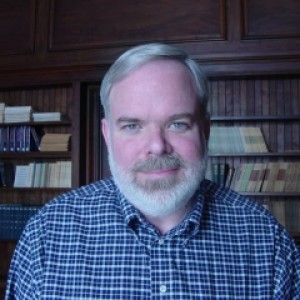
Monday Mar 04, 2019
Episode 049 - Craig Lent: physics and humanity
Monday Mar 04, 2019
Monday Mar 04, 2019
0:00 - Introduction
1:00 - The power of physicalism/reductionism: a tremendously powerful method
2:00 - Course on physicalism and Catholicism; Sean Carroll's least hysterical "poetic naturalism"
3:00 - The lack of evidence for "emergence" in the sense of "downward causation"
3:30 - Soft and hard emergence
10:15 - Materialism vs. physicalism and reductionism: philosophical materialism
13:00 - Are human beings exhausted by this account of reality?
14:00 - The break with the mechanical universe of 19th century physics underappreciated
15:00 - Laplace's demon
16:30 - Thermodynamics
17:30 - Future not contained in the present
19:00 - Einstein & hidden variables
20:00 - Bell inequality experiments
24:00 - Entanglement
26:00 - Human experience: both, as physical, but also as having choices
27:00 - Quantum physics on many body systems
28:00 - The hard problem of consciousness
29:00 - The explanatory gap
31:00 - The tendency to explain the brain as "just like" some recent piece of technology
33:00 - Complexity of neurons, the continuing relevance of physical laws amid the complexity
35:00 - Continuing relevance of quantum effects at the level of neurotransmitter molecules, etc.
36:00 - Quantum effects in weather and rock mechanics
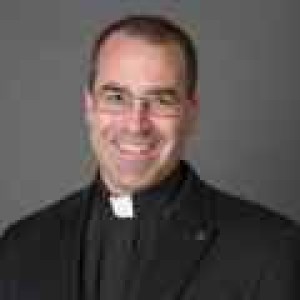
Monday Feb 25, 2019
Monday Feb 25, 2019
0:00 - Science is materialist by method, but scientists need not and should not be materialist by philosophy
2:00 - The world must be real and intelligible for science to make sense
3:00 - And faith provides a philosophical basis that allows this to happen
3:30 - Students' testimony on faith and science
4:30 - Removing the faith/science obstacle is only one step on the road toward faith
5:00 - God vs. Godzilla
6:00 - The true God and His use of secondary causes
11:00 - Creation as carmen Dei (song of God; Bonaventure)
12:00 - vs. strepitus naturae
15:00 - Thought and spirit vs. matter
[This harks back to, e.g., the Ed Feser talk at the SCS conference. I personally think there is an enormous gap--bridgeable, but still to be bridged--between these arguments that the ability of the mind to generate and handle abstract concepts implies a non-material component to thought on the one hand, and the work of modern neuroscience to track the activity of neurons around the brain in specific patterns as we think.]
17:00 - Philosophical gaps in the picture of existence without God
18:00 - Infinite regress of causes, temporal/efficient causes and extra-temporal
19:00 - Postmoderns in general have a depressing view: a para-Christian morality without God; doctrinaire atheists live in an even more depressing paradigm of complete lack of meaning
21:00 - Basil & Pope Francis on creation
22:00 - Basil on the interpretation of the six days and other aspects of creation
23:00 - Guides on the tour of creation
25:00 - Symbolic language (numbers) in Scripture
27:00 - Scriptural mandate to tend creation
29:00 - Historic ginning up of the conflict between science and faith
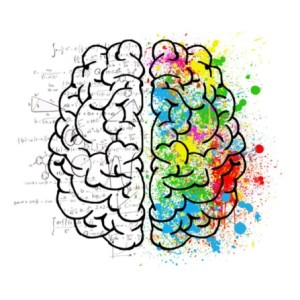
Monday Jan 28, 2019
Episode 044 - The Brain and The Pain of Being Human
Monday Jan 28, 2019
Monday Jan 28, 2019
In this episode, we expand on our introduction to the brain by discussing some theories - ranging from well-documented to rather speculative - about the specific structures of the brain that are active (or less active) in situations ranging from autism to depression, stress, and trauma.
At the end we spend a few minutes on a preliminary critique of the materialist reductionary attitude ("interpretation" is too grandiose a word for it) toward brain science by many of its practitioners and reporters. Free will, for example, is not an illusion just because the physical part of the brain where it happens can be injured and we can be deprived of it... but much more on such neurophilosophical issues as the year progresses.

Monday Jan 14, 2019
Episode 042 - TSSM in 2019, part 2
Monday Jan 14, 2019
Monday Jan 14, 2019
What sense can we make of the ancient and medieval idea that "the soul is the form of the body" in the light of contemporary neuroscience and psychology?
Highlight this idea's differences from Platonic and Cartesian dualism.
History of psychology as a discipline. Psychology has not evolved (a) master paradigm(s) that compel the bulk of the field to adhere to them the way that plate tectonics did for geology, Newtonian classical physics and then quantum and relativity did for physics, etc.
Peace of Soul (Fulton Sheen) remark that psychology has been furtively recycling Christian ideas and passing them off as new for a long time
Examining the convergence points of the advice for living from the Bible and Tradition, modern psychology, and the contemporary self-help / New Age-y movement that continues to spread and adapt through large sectors of modern culture.
Self-esteem, humility...
Confidence, faith, negative tapes...
Twelve Step spirituality (Richard Rohr and the intense overlap between 12 Step and Catholic spirituality)
Even many of us who are explicitly Christian have internalized a kind of Lutheran / Jansenist belief that we are so terrible that, in essence, God made a mistake in going to all this effort to save us, because we're not worth it. This is one of a number of areas in contemporary Catholic and Christian culture where we have let our understanding of Scripture and Tradition get very warped and imbalanced.
Issues surrounding how the Christian and scientific understanding of universal history could fit together.
What will "the end of the world" look like? Will it be the end of the whole universe or not? Will there be human colonies on other planets, orbiting other stars? How would the Apocalypse play out then?
You can find That's So Second Millennium at all of these places:
tssm.podbean.com
paggeology.net/blog
@infamousDrG on Twitter
That's So Second Millennium page on Facebook
giesting -at- alumni.nd.edu is Paul's email address
Please be in touch with your feedback, ideas for new episodes, and conversation of any kind!

Monday Jan 07, 2019
Episode 041 - TSSM in 2019
Monday Jan 07, 2019
Monday Jan 07, 2019
Themes we'd like to grapple with in the Year of Our Lord, 2019, and beyond:
Last year was largely about the intellectual challenge leveled by many against religion, and we will continue talking about that as the podcast moves forward.
Paul's mission this year to work through Road to Reality
This year we also want to broaden the scope to include places where religion and faith converge, which means we're going to discuss psychology.
Looking forward to the SCS conference topic for this coming year: what it is, and has been, to be human. Neuroscience and what it implies for anthropology, and where it meets Catholic Christian anthropology coming the other way.
What is consciousness, anyway? What parts of the brain seem to be involved, and what do they do?
What is free will, anyway? Where are those breakpoints where the soul would have to affect the body in order for that to even work?
Crisis points in the way people in the post-Christian West approach the world.
Center for Ethics & Culture annual conference in 2018: Wilfred McClay & John Waters
"we care about everything, but without God... we have responsibility for everything, but we know that we are flawed and unable to provide solutions"
Post-Christian in this context includes both people who have explicitly renounced the Christian faith of the West and those who have a Christian identity in their back pocket somewhere but in reality are not relying on Jesus Christ or his teachings to guide their lives in any conscious way.
Christianity is a demanding religion. If you suck away all the grace and help it promises, but leave some of its demands for social justice or purity of intention, you have a recipe for constant internal condemnation.
Link:
Wilfred McClay (University of Oklahoma) on “Guilt in the Immanent Frame”, and John Waters on “The Importance of Not Being God: A Higher Power Is Indispensable for Human Beings and Human Societies”
No, not THAT John Waters.
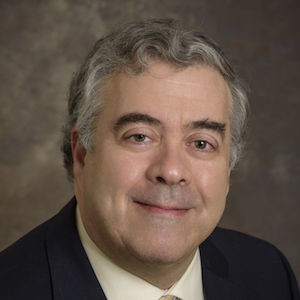
Monday Nov 19, 2018
Episode 034 - Stephen Barr on Why to Be a Religious (and Catholic) Scientist
Monday Nov 19, 2018
Monday Nov 19, 2018
~0:00 Question: advice for students
1:00 Don't be afraid to be a religious scientist
2:00 Particular issues
3:00 Keep awake to the wonder of the world
4:00 Bill: ignorance of the common man about both science and religion
5:00 Modern Physics and Ancient Faith
6:00 Christopher Baglow: science and faith textbook
7:00 Church beginning (at long last?) to address the need to catechize & educate about this
Phone ringing can't be excised without gutting Bill's question!
8:00 Media's portrayal of religion as boring and science as exciting
9:00 Science explores the world as it is, but there must be issues beyond: "why" issues
10:00 Intellectual freedom necessary for science to make any sense
11:00 No reason for Catholics to fear science uncovering fatal problems for faith
12:00 20th century overturn of 19th century mechanistic, unfree universe
13:00 Advent of the big bang theory, verification through microwave radiation
14:00 Bill: "free will on steroids" in uneasy coexistence with materialism
15:00 Barr: inherent conflict there
16:00 Pernicious recurring feature of intellectual history: excuses not to be free
17:00 Bill: does faith make one a better scientist?
18:00 Wonder: "ears to hear and eyes to see"
19:00 Summation: join Society of Catholic Scientists!
20:00 Sign off

Monday Nov 12, 2018
Monday Nov 12, 2018
Minute Comment
0:00 Paul introduces
1:00 Bill: Lemaitre announcement
2:00 Lemaitre: faith & science not opposed
3:00 Barr: Lemaitre announcement
4:00 Ignorance of Lemaitre
5:00 Ignorance of the Christian, Catholic origin of science & famous Catholic scientists
6:00 Barr: late 19th century critical period for the forging of the myth of Church as anti-science
7:00 Science only professionalized in the late 19th century, looking for influence
8:00 More famous Catholic scientists
9:00 Mission of the Society of Catholic Scientists; religious people looking askance at scientists, 10:00 Scientists timid about showing their faith in the presence of a few loud atheists
11:00 Catholic scientists joining SCS & finding others like themselves
12:00 Witness to the world
13:00 Conferences, past and future: next June at Notre Dame
14:00 2017: origin of universe, life; 2018: mind and matter
15:00 2019 conference: what is it (and has it been) to be human; speakers from outside the faith
16:00 Past non-Catholic conference speakers
17:00 Peter Koellner's talk at 2018 conference
18:00 Koellner and Godel's theorem
19:00 Neaderthals, language, reason
20:00 Godel's beliefs about mind and mathematical truths
21:00 Mathematical truth and religious truth
22:00 Depth & sophistication of the law that governs the universe
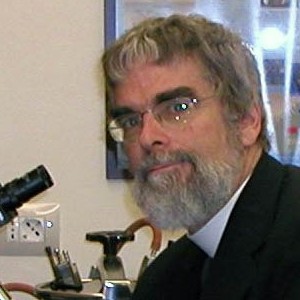
Monday Oct 29, 2018
Episode 031 - Br. Guy Consolmagno: Teaching Science and Human Nature
Monday Oct 29, 2018
Monday Oct 29, 2018
Paul moves from popular books to Br. Guy's 1990s planetary science textbook, Worlds Apart which Paul switched to in 2015, despite its age, precisely because of Br. Guy's explicit acknowledgment that "students want to learn about THE PLANETS." The chapters of the book therefore start with a saga of some planet, and then focus in on some process that is well exemplified on that planet. Other textbooks try to focus on processes and lose ME, let alone my students, most of whom were headed toward high school teaching.
Br. Guy goes on from the subject of his books to talk a little about John Scalzi's take on the common advice to authors to "kill your darlings"..."the failure mode of clever is idiot." (I am not unfamiliar with John Scalzi, who is certainly a master of the craft: see my review of Old Man's War on Goodreads.)
Bill references the science & religion initiative at the McGrath Institute at Notre Dame, to which Br. Guy has contributed. The Institute tries to form high school teachers with a sense of the complementary, rather than adversary, nature of science and faith. Br. Guy goes on to talk about how hard a high school teacher's job is, and the need for enthusiasm in presentation. If you are listening to two enthusiastic people talk shop about almost any topic, however little you yourself know about it, you get drawn in. That's the goal, except most high school teachers have to do it by themselves.
A teacher that can maintain enthusiasm and also model comfort with not knowing the answer and intellectual humility..."I don't know; let's go find the answer"...is a great gift to insecure, "self-conscious but not self-aware" teenagers.
Paul probes Br. Guy about the modern attitude of trying to discard as much of the past as possible. Br. Guy comments how living in Italy gives you perspective on how the attitude has shifted from the medieval attitude (discussed in great depth by CS Lewis in The Discarded Image) of reverence for the past, whose achievements we could never match, to the modern one. Rome gives you the perspective that while science and engineering may have advanced, art and architecture have not. Humanity can only progress so far...we can't get away from original sin. We do things we know are wrong, destructive, etc. That's why Twelve Step programs exist. A great 20th century tragedy, as has been noted many times, is the failure of great schemes (like communism) for revising society in some theoretically perfect new form.
A chance reference to Shakespeare, and then to Star Trek VI (of course), leads us off into a discussion of language and the way it shapes our lives, from the fun people have had since Tolkien inventing whole new languages, to the difference in what Sarah cooks for Abraham's visitors in English (yuck) versus Italian. Br. Guy makes the provocative statement that one has to learn more new words in freshman biology than in freshman French. When you learn philosophy, you learn new words, and with those words (if you're really learning them) you learn new ways of thinking.
As a final note, that's why you need others to truly learn and work in a subject...or in a faith. The Ethiopian that Phillip baptized in the Acts of the Apostles had a hard row to hoe.
https://vofoundation.org/faith-and-science
Books mentioned in the interview:
Wind, Sand, and Stars by Antoine de Saint-Exupery
Unapologetic by Francis Spufford
The Rock by T.S. Eliot
Image courtesy Robert Macke (wikimedia Commons)

